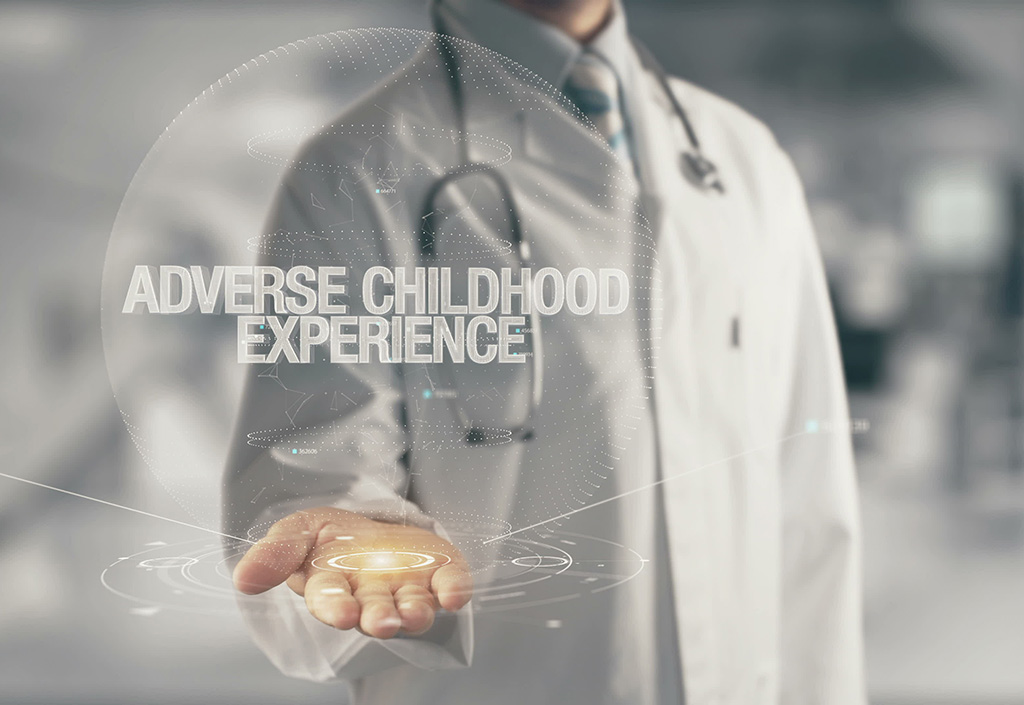Adverse Childhood Experiences (ACEs)
Adverse childhood experiences are associated with developing substance use disorders, including an earlier age of initiating opioid use, recent injection drug use, and lifetime overdoses (Stein et al., 2017).
Historical and generational trauma (epigenetic consequences of toxic stress) caused by ACEs can alter our DNA, and we pass the altered DNA on from generation to generation (de Magalhães-Barbosa et al., 2022). Children growing up with toxic stress may have difficulty forming healthy and stable relationships. They may also have unstable work histories as adults and struggle with finances, jobs, and depression throughout life. These effects can also be passed on to their children. Some children may face further exposure to toxic stress from historical and ongoing traumas due to systemic racism or the impacts of poverty resulting from limited educational and economic opportunities (Stevens, 2019).
Despite any horrendous stress you may have experienced, you are not doomed. You can alter your path and find a meaningful future. The CDC suggests we shift the focus from individual responsibility to community solutions. Reduce stigma around seeking help with parenting challenges or substance misuse, depression, or suicidal thoughts. Promote safe, stable, nurturing relationships and environments where children live, learn, and play.
Understanding ACEs — Dr. Nadine Burke Harris

From the Office of the California Surgeon General
😊
Positive Childhood Experiences and Resilience
Researchers found a dose-response association between positive childhood experiences and a lack of impact of ACEs. Some examples include the following:
- Feeling like family stood by one during difficult times and feeling safe and protected by an adult in the home
- And adult mental health among adults who had experienced ACEs, irrespective of how many ACEs they had (Bethell et al., 2019).
- A newer study found that “greater childhood family connection was associated with greater flourishing in U.S. adults across levels of childhood adversity” (Whitaker, Dearth-Wesley, & Herman, 2021).
- Similarly, positive parenting practices demonstrated robust protective effects independent of the number of adverse childhood experiences (Yamaoka & Bard. 2019).
- Some solutions depend on legislation and developing a cadre of citizens who demand change and follow through to ensure such change happens in their community.
Video Series: Hope Framework Approach
Engaging in Self-care
- Emotional Wellness Toolkit: 6 Strategies for Improving Your Emotional Health
- Social Wellness Toolkit: 6 Strategies for Improving Your Social Health.
- Physical Wellness Toolkit: 6 Strategies for Improving Your Physical Health.
- Disease Prevention Toolkit: 6 Strategies for Preventing Disease.
- Environmental Wellness Toolkit: 7 Strategies for Improving Your Environmental Health.
Preventing Adverse Childhood Experiences
Explore new training and ensure all children grow up healthy and happy.
Source: CDC VetoViolence | https://vetoviolence.cdc.gov/apps/aces-training/#/#overview
Test Your Knowledge (answer yes or no)
1. The effects of adverse childhood experiences go away after a few years.
NO: Potential negative consequences from ACEs influence people throughout their lives.
2. Poverty and family history of addiction are examples of adverse childhood experiences that put people at higher risk of opioid addiction.
YES: Experiencing poverty and/or having family members with drug addictions can be traumatic for a child and put them at higher risk of developing addictions later in life.
3. ACEs are uncommon.
NO: 64 percent of adults in twenty-five states experienced at least one type of ACE before the age of eighteen.
4. Toxic stress from ACEs can inhibit children’s brain development, immune systems, and decision making.
YES: Stress can have many negative effects on the brain, especially traumatic stress such as that from ACEs.
5. Young people are at greater risk for opioid misuse because their brain is not finished developing yet.
YES: The brain is not fully developed until the age of twenty-five, making this another risk factor for opioid addiction.
6. Sleep deprivation can lead to diminished impulse control and increased cravings for substances.
YES: Reduced sleep also reduces the ability to perform executive functions like decision making and self-control.
